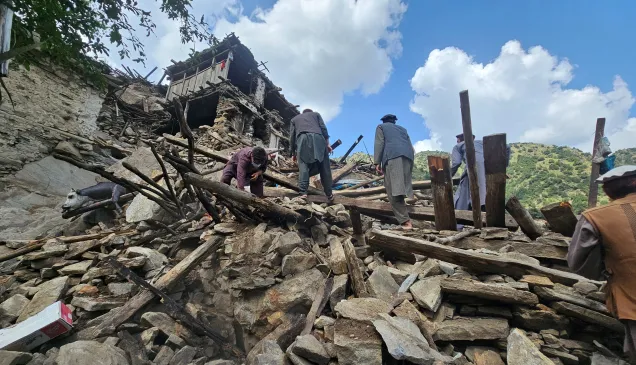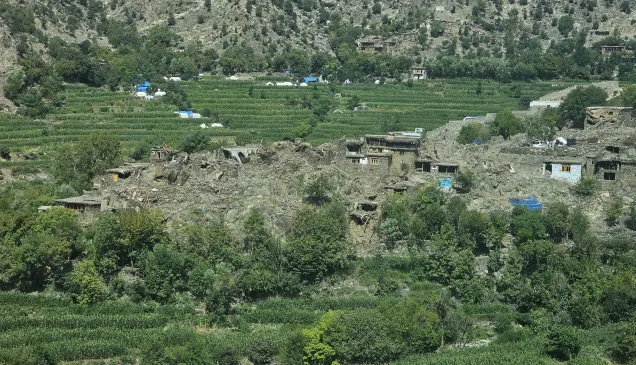Afghanistan: Revisiting the physical rehabilitation centre in Faizabad
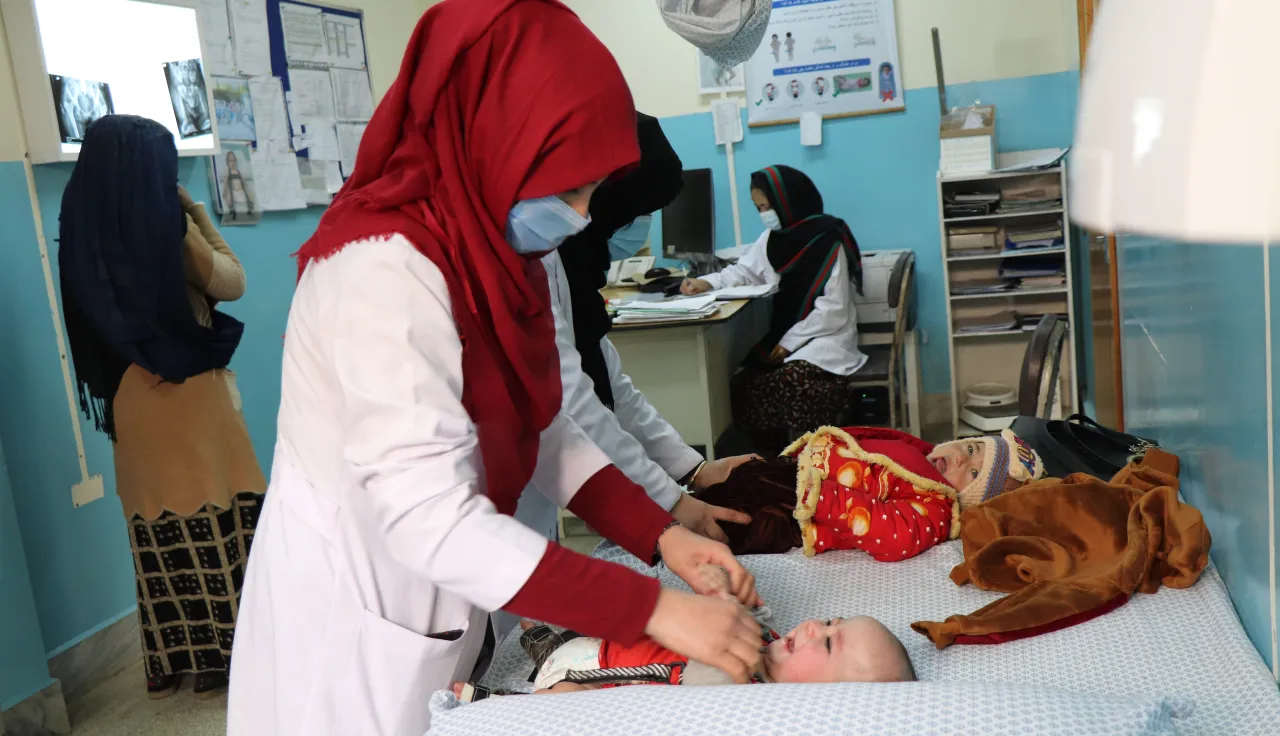
Roughly 510 km from Kabul, Badakhshan's provincial capital Faizabad sits high at an altitude of 1,200 m above sea level. The mountainous province of Badakhshan is home to around 1.5 million people and also houses a physical rehabilitation centre that the ICRC has been supporting since 2001.
Before the facility came up at Faizabad, communities from the northern and northeastern parts of Afghanistan would undertake a physically daunting journey to reach the main centre in Kabul, sometimes traveling for days over a tough terrain. To make physical rehabilitation and social integration services more accessible to the people of Badakhasan, Takhar, and Kunduz, the ICRC set up this centre 20 years ago.
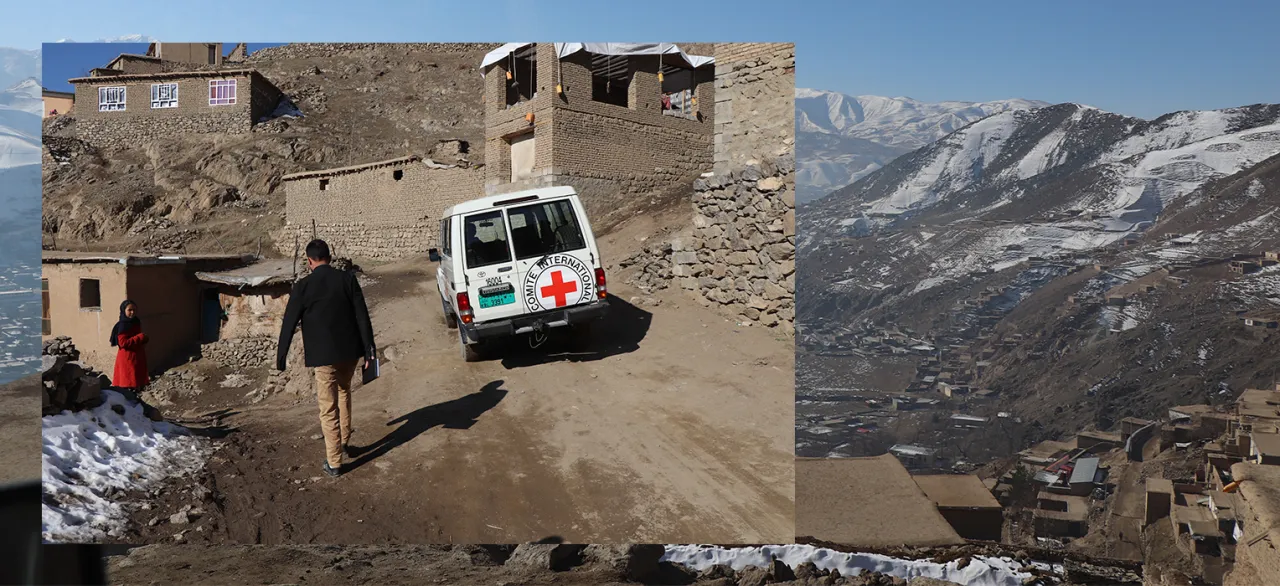
Faizabad is a city in north east Afghanistan, it serves as the provincial capital and largest city of Badakhshan Province. It is situated in Faizabad District and is at an altitude of 1,200 m. (3,937 ft.). Mohammad Masoud SAMIMI / ICRC
Since then, the Faizabad centre been able to support as many as 17,000 people each year with various physical rehabilitation services, including helping thousands of victims of landmines with prostheses. The other focal area of support has been social reintegration.
Due to the country's struggle with violence and poor access to public health care, the number of people who require medical help for their disabilities continues to remain high. Besides supporting thousands of Afghan nationals with prostheses and allied services, the centre also offers physiotherapy and necessary help for readjusting to the new limbs – an experience that can be stressful and hence needs expert guidance.
Faizabad centre been able to support as many as 17,000 people each year
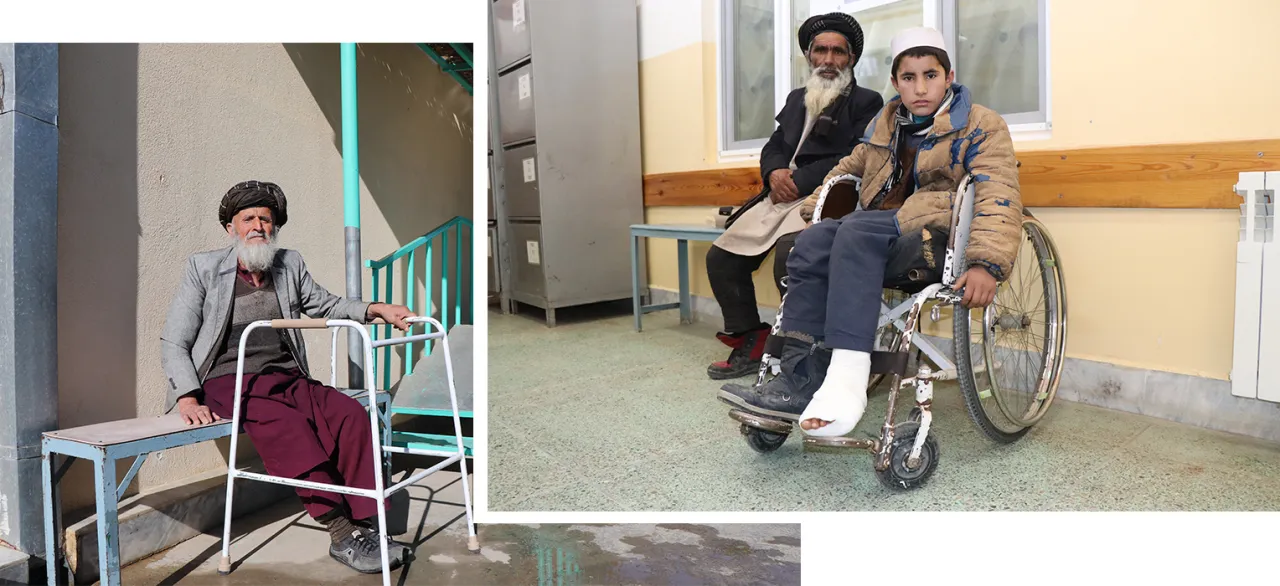
(Left) 75-year-old Mohammad Naser was brought in from a remote district (Shar-e-Buzurg) of Badakhshan province for treatment after he fell from a height of 7 meters and was paralyzed. Mohammad Masoud SAMIMI / ICRC
(Right) 13-year-old Mohammad Sediq and his father at the ICRC physical rehabilitation centre in Faizabad for treatment after he fell in a Tanour. Mohammad Masoud SAMIMI/ ICRC
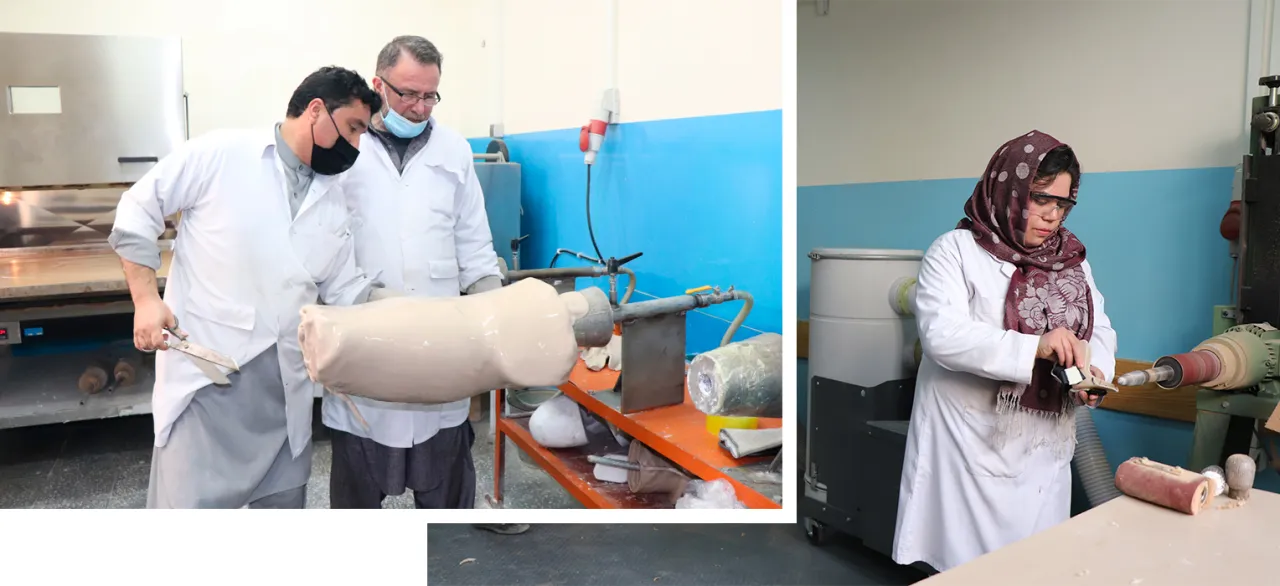
ICRC physical rehabilitation center in Faizabad, Badakhshan. Mohammad Masoud SAMIMI / ICRC
Recognizing the crucial importance of social reintegration, the centre also provides persons with disabilities with opportunities to pursue an education or a vocational training course, besides offering microcredit and job placement assistance, where possible.
For many, the process of recovering from physical injuries can take many years. And what they end up losing is not just time, but also confidence, opportunities and a real chance at a normal life. This is why the programme not only seeks to provide physical rehabilitation services, but also promotes and ensures inclusion for people with disabilities by equipping them with skills and support needed to live fuller lives.


